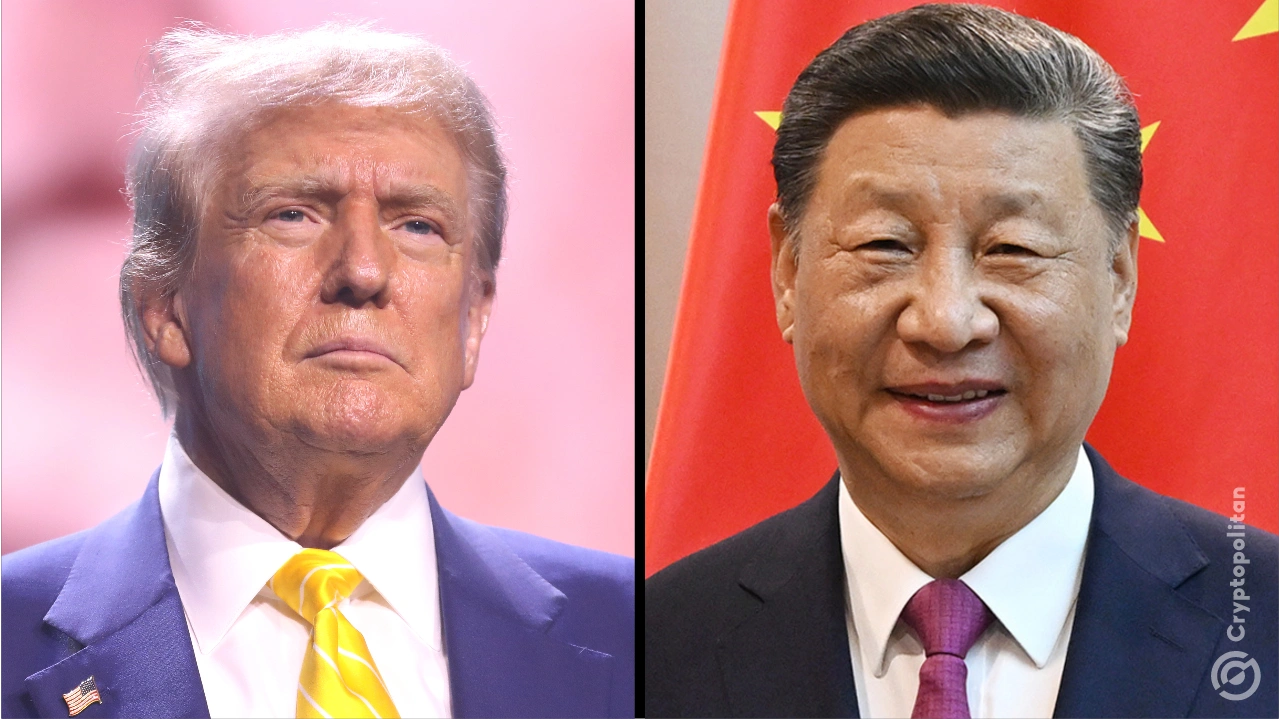According to the materials of the site - By Cryptopolitan_News

Many Chinese save rather than spend, as the stock market has been weak for years. Families keep their money in banks, and even leaders like Xi Jinping or Donald Trump would find it hard to change that.
According to Bloomberg, even after the recent rebound, China's major stock indices have only returned to levels recorded after the ten-year market crash. During this time, the S&P 500, which was at 10,000 dollars, has risen to over 30,000 dollars, while the comparable CSI 300 index is only about 13,000 dollars.
Analysts point to structural reasons. About 35 years ago, exchanges were primarily created to attract funds for state projects, not to reward investors. This orientation led to too many stock sales and negative behavior after IPOs — problems that still affect the market, which has a volume of about 11 trillion dollars.
Politicians are increasingly faced with the need to revise this system. To achieve 5% growth amid an escalating tariff dispute with the U.S., Xi Jinping is betting on consumption, while Beijing relies on equity financing for strategic technology companies, whose revenues are far from guaranteed.
The recent growth has shown clear limits. The CSI 300 index has risen less than 7% this year, despite enthusiasm for artificial intelligence, lagging behind indices in the U.S. and Europe. Combined with uncertain prospects, this helps maintain the household savings rate at 35%.
Chen Long, an asset management specialist, turned to Xiaohongshu to warn newcomers about the risks. 'Many ordinary people come to the company thinking they can make money, but most end up poorer,' said Chen, who has been investing since 2014.
He added: 'State-owned companies primarily answer to the government, not shareholders, while many private entrepreneurs care little about small investors.'
High-ranking officials increasingly recognize the importance of stocks for household wealth amid a downturn in the real estate market and an uneven social safety net that heightens caution.
In December, the Politburo of the Communist Party promised to 'stabilize housing and stock markets,' which was an unusual step towards stocks at this level. In July, it called for 'enhancing the attractiveness and inclusiveness of domestic capital markets.'
Economists view recovery as the only quick solution. However, restoring confidence is difficult to achieve quickly. 'Except for the recovery of the stock market,' said Hao Hong, director of investments at Lotus Asset Management Ltd. 'This is a topic we economists discuss at closed meetings in Beijing.'
Today's problems have roots in decades. 'Exchanges are motivated to heed the government's call for increased company financing,' said Lian Ping, chairman of the Forum of Chief Economists of China. 'But when it comes to protecting investors' interests, few are interested.'
The surge in IPO activity made China the largest listing market in 2022; however, insufficient shareholder guarantees and lack of enforcement led to price crashes and share withdrawals. Private investors call it 'a minefield.'
For example, Beijing Zuojiang Technology, listed in 2019, announced in 2023 that its product is based on Nvidia BlueField-2 data processing chips. In January of the following year, the company warned of a possible delisting due to an investigation into disclosure issues, and it was later removed from the Shenzhen Stock Exchange. The China Securities Regulatory Commission did not immediately respond to a fax requesting comment on the situation.
Since then, officials have tried to narrow the circle of potential investors: tightening scrutiny of weak applicants, enhancing anti-fraud measures, restricting follow-on offerings and sales by blockholders, and requiring increased payouts.
This is starting to yield results. Last year, the number of IPOs dropped to about a third of the 2023 figure. Companies from Shanghai and Shenzhen paid out 2.4 trillion yuan (334 billion dollars) in cash dividends for 2024, which is 9% more than the previous year, state media reported.
'Regulation and general post-IPO requirements have become stricter in terms of reliability, transparency, and disclosure,' noted Ding Wenze, an investment strategist at China Asset Management Co.